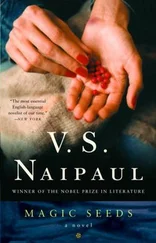Marsh shook his head. Nearly a grand for something that shouldn't cost one pony. Thank you, Franco . It would have been easier to use the tickets intended for Krasnopolsky, but someone had been watching him; given the fool's conduct, Marsh couldn't risk adhering to the original travel plan.
And now Krasnopolsky was dead, reduced to so much ash in the span of a few heartbeats, along with most of the information he carried. During his journey from Tarragona, Marsh had emptied the unburned scraps from the valise into an envelope along with the cash and Krasnopolsky's passport. There wasn't much left: the lower-left corners from a half dozen pages of a memo or report, written in German; half a photograph; and a jumble of acetate strips. The strips were all that remained of an eight-millimeter filmstrip. The film had been coiled on a reel, but when the valise ignited, a portion of the film had melted and disintegrated, rendering the rest a jumbled mess of confetti.
Marsh had pored over it all a dozen times. The legible pages contained no mention of a Doctor von Westarp or children. The visible portion of the photograph showed an unremarkable farmhouse. And the scraps of film were unintelligible to his naked eyes.
Marsh took the proffered voucher and retreated back through the crowd mobbing the ticket window. A breeze mingled fear, seaweed, rotting fish, and diesel fuel into a stomach-churning melange. Every port in Catalonia must have been staggering under the influx of refugees as the Nationalists made their final push into the Pyrenees.
He headed for his pier, scanning the crowd as he went. There wasn't much time before his ship departed, but Marsh wanted to find something first. He watched a portly well-dressed man pushing a hand truck piled high with luggage. The man stopped on the boardwalk to pull a pair of eyeglasses from his pocket.
Aha , thought Marsh. Those should do the trick.
The man frowned at his ticket, then looked around in search of a placard. Marsh orchestrated his collision with the hand truck to make it appear as though he'd been too intent on his own ticket to notice it. Luggage clattered to the boardwalk.
“Hijo de puta!”
“Lo siento! Lo siento, senor.”
Marsh swiped the eyeglasses while helping the man gather his things. “ Lo siento muchisimo. ” The man departed with a crack about burying Marsh's heart in a hole so deep, the Virgin Mary couldn't find it.
A piercing shriek echoed throughout the port. The steam whistle on Marsh's ship, making its penultimate boarding call. People scurried up the gangplank in ones, twos, and threes. Marsh needed to get going, but his curiosity couldn't be contained any longer.
A stack of cargo crates formed a passable shelter from the wind and crowds. Marsh hid behind the crates, crouched on a coil of rope. He pulled an acetate fragment from the envelope inside his shirt. What the fire hadn't destroyed outright it had made very brittle, so he took great care when handling the crisp film. Using the eyeglasses as a makeshift magnifier, he strained to identify the images.
Twenty frames of a brick wall. The second fragment showed an empty field. The third showed two men in Schutzstaffel uniforms kneeling over an empty container and smiling. The fourth fragment showed a machine gun nest and the long view down a firing range.
The fifth showed an antiaircraft gun hovering above the same range. Marsh shook his head. Too many hours on the road and not enough sleep. But when he looked again, it truly did look like the eighty-eight was floating in midair. No evidence of an explosion, either, though it was hard to tell from a few frames of heat-damaged film.
What on God's green Earth were you mixed up with, Krasnopolsky?
The fragments crackled against each other when he dropped them back in the envelope. Once the envelope was secured inside his shirt once more, he stood as though he'd merely ducked behind the crates to tie his shoes.
A gypsy woman stared at him from across the boardwalk with wide plum-dark eyes. She'd been beaten. The skin around one of her eyes looked like the rind of an aubergine; the corner of her mouth quirked up where her split lip had scabbed over.
Marsh frowned. He sized up her companion, a man with the same olive skin as the woman. Brother? Husband? A tall fellow, but not problematically so. Enjoy beating up women, do you? Marsh cracked his knuckles as he started for the pair.
Another breeze rolled off the harbor. It tugged up the kerchief tied over her hair and fluttered the braids hanging past her shoulders.
And jostled the wires connected to her head.
Marsh stopped. He looked again.
Wires. In her head.
The wind died, and the kerchief covered her hair again.
She winked at him.
Her companion said something. She turned away. Marsh made to follow them before they disappeared in the throng.
The whistle on his steamer blew two short, impatient bursts. Final call. He looked over his shoulder. The last few stragglers dashed up the gangplank under the watchful scowl of the porter.
When he turned back, the woman was gone.
“Gretel, please.” Klaus tugged at his sister's hand. “We have to go.”
Exasperation crept into his voice, though he tried to suppress it. In addition to Rudolf, two technicians had died when the errant mortar shell hit the house. A doctor had also died in the fire during the confused scramble to evacuate. One of the Twins nearly perished, too, before Reinhardt strode through the fire and released her from the restraints on the operating table. Standartenfuhrer Pabst made the decision then and there to terminate training operations in Spain. There was no point in risking further Reichsbehorde assets to another “accident.” They had their field results; it was time to go home.
“Sorry, brother.” Gretel turned and smiled. The swollen skin around her eye stretched tight. “I'll be good.”
Pabst had belted her with a savage backhand across the jaw when he learned of Rudolf's death. It was her duty, her purpose, to warn them of such dangers, he'd screamed. And, like the incantations of a mad al-chemist, her laughter had transmuted his rage to violence, his open hand to a fist.
Reinhardt wasn't punished for burning down the house.
“What were you staring at?”
“Daydreams. Posies and gravestones.”
Klaus sighed. “Our pier is this way,” he said, pulling her through the crowd.

22 February 1939
Westminster, London, England
Brittle scraps of acetate fluttered across Stephenson's desk as he paged through Marsh's report. The charred edges of the document fragments littered the wide expanse of cherrywood with black flakes and smears of carbon. Ashes skittered along the desk and drifted to the carpet at Marsh's feet every time Stephenson exhaled. They smelled of woodsmoke and scorched leather.
Marsh rocked on the balls of his feet. Stephenson had been at it for a good half hour.
Somewhere down on the street the rat-a-tat syncopation of a two-stroke engine drifted out of the white noise of a London morning. A motorbike, probably a Villiers, zipping along Victoria Street, Marsh gauged. Stephenson's window didn't afford a grand view, mostly just the buildings across Broadway, but from here on the fifth floor of SIS headquarters, it was possible to glimpse the late-winter sun on the trees of St. James' Park several streets over.
“Hmmm.”
Marsh looked back to his mentor. Stephenson opened a side drawer and produced a jeweler's loupe, a holdover from his days as a photo recon analyst during the Great War. He examined a random sampling of film scraps with quiet concentration. One by one he held them up toward the window in his single hand, squinting through the magnifying lens. Marsh scooted aside so as not to block what little natural light the window provided.
Читать дальше










